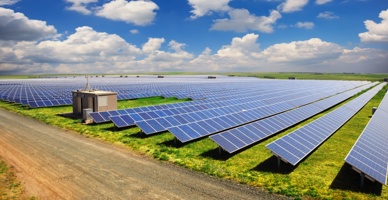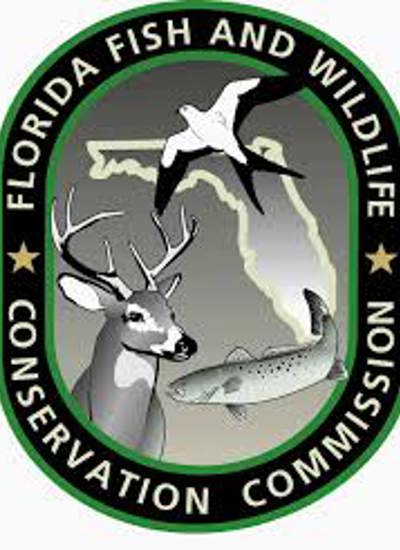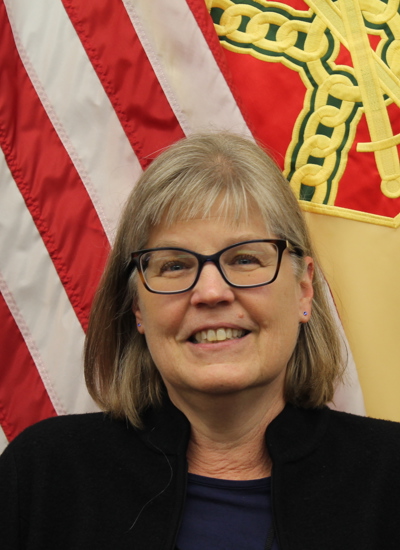- Home >
- Strategic Plan and Focus Areas >
- Energy Development and Siting
Energy Development and Siting


About
Due to rapidly changing energy policy and advancement in renewable energy technologies, the Southeast is increasingly seen as an ideal region for locating wind, solar and other forms of energy infrastructure. Despite the benefits these technologies may bring, without proper planning and siting, they can have adverse impacts on military readiness, natural resources, and agricultural working lands. Potential habitat destruction and fragmentation of wildlife corridors, conversion of agricultural lands, and interference with military aviation and radar operations are examples of impacts that need proactive efforts now to avoid future potential problems.
The SERPPAS Energy Work Group is assessing various measures that 1) ensure early stakeholder notification of proposed energy projects; 2) encourage and facilitate robust coordination; and 3) make effective use of new or existing tools that could aid developers’ understanding and ability to address potential impacts.
This collaborative regional approach will establish the means to ensure federal and state officials are able to effectively influence and mitigate potential project impacts, thereby conserving natural resources, protecting the military mission, and strengthening effective working relationships into the future.
Strategic Objectives
- Build diverse partnership of military, natural resources, and energy industry stakeholders to raise awareness of challenges, share resources and priorities in the region, and identify intersecting opportunities.
- Support the creation and advancement of mapping tools for new energy development, pinpointing critical zones for wildlife, habitat, military operations, and cultural resources.
- Promote, develop, and share innovative strategies to produce mutually beneficial outcomes for energy development, military mission, environmental justice, and avoid detrimental impacts to wildlife, natural and cultural resources, and agricultural working lands.
- Coordinate with the other SERPPAS work groups to identify strategies for protection of natural resources and military operations and address energy resilience in the context of enhancing military installation resilience.
Work Group Lead


Linda McDowell (Lindy) is a Biologist for the US Army in the Conservation Branch of the US Army Environmental Command (USAEC). She is based in San Antonio, Texas, at Fort Sam Houston. Lindy provides Army leadership and agency officials with technical support as a senior Natural Resources Program Manager. She helps installations located world-wide to sustain their natural resources while keeping focus on the US Army’s mission to provide combat readiness and protect the security of our nation.
Before joining the US Army, Lindy spent five years working for the Federal Aviation Administration (FAA) in the FAA’s Southern Region, Orlando Airports District Office where she executed federal grants to fund environmental analysis for approved Airports’ projects and managed FAA’s compliance with the National Environmental Policy Act (NEPA) and other special purpose environmental laws. Prior to that she spent several years working for the State of Florida’s Department of Environmental Protection (FDEP). While at FDEP she directed inter-agency coordination efforts and environmental planning through the Florida State Clearinghouse for the Florida Coastal Management Program (FCMP). Lindy’s work required her to understand diverse viewpoints and positions, and to consider these to achieve compliance with NEPA and other regulatory issues for consensus within the FCMP.
Lindy has a Bachelor of Science degree in Aquatic Biology from the University of Texas at Austin, and post-baccalaureate work in Ecology from the University of Central Florida.
Request to Join Work Group
Resources
Documents
Websites
Military Aviation and Installation Assurance Siting Clearinghouse
Georgia Low Impact Solar Siting Tool (GA LISST)
Texas Early Notification Tool
Recommended Practices for the Responsible Siting and Design of Solar Development in Georgia
Recommendations for State and Local Governments to Advance Smart Solar
Renewable Energy Wildlife Research Fund
South Carolina Solar Habitat Act
North Carolina Low-impact Solar Siting Analysis
EPA’s RE-Powering Mapper
News

Announcing 2024 Sentinel Landscapes to Address Climate Change Impacts and Strengthen Military Readiness
5/15/24
The Sentinel Landscapes Partnership, comprised of the U.S. Department of Agriculture (USDA), Department of Defense (DOD), and Department of the Interior (DOI), announced the designation of five new sentinel landscapes. In these landscapes, natural and working lands thrive alongside military installations and ranges. The partnership is excited to welcome these new landscapes and support their partners' work to mitigate climate change impacts and improve sustainable land and water management practices around military installations.
Visit the SERPPAS News Archive
REPI Program Releases the REPI Challenge FY 2025 Request for Proposals
5/6/24
DOD's REPI Program is pleased to announce the release of the REPI Challenge Fiscal Year (FY) 2025 Request for Proposals (RFP). The REPI Program designed the REPI Challenge to help meet its ambitious conservation goals while aiming to cultivate new projects, harness creativity, and protect critical testing and training capabilities.
Visit the SERPPAS News Archive
2024 REPI Report to Congress Released
4/11/24
The 18th annual REPI Report to Congress summarizes the program’s investments at 124 locations across 37 states and territories, highlights partnerships across local, state, and Federal agencies, and showcases mutually beneficial projects in the Pacific Region. Through the support of partner organizations, the REPI Program aims to enhance the Nation's defense capabilities, positively impact surrounding communities and the environment, and maximize taxpayer benefits. The REPI Program’s cost-effective projects and expanded partnership opportunities would not be possible without support from partners who share a common goal of safeguarding military missions, preserving the natural environment, and reducing risks from extreme weather events.
Visit the SERPPAS News Archive
USDA Makes $1.5 Billion Available to Help Farmers Advance Conservation and Climate-Smart Agriculture as Part of President Biden’s Investing in America Agenda
4/3/24
Agriculture Secretary Tom Vilsack today announced the availability of an historic $1.5 billion in fiscal year 2024 to invest in partner-driven conservation and climate solutions through the Regional Conservation Partnership Program (RCPP) as part of President Biden’s Investing in America agenda. The U.S. Department of Agriculture (USDA) is accepting project proposals now through July 2, 2024, that will help farmers, ranchers, and forest landowners adopt and expand conservation strategies to enhance natural resources while tackling the climate crisis. These projects in turn can save farmers money, create new revenue streams, and increase productivity.
Visit the SERPPAS News Archive
DOE Invests $22M to Improve Siting and Permitting for Large-Scale Renewable Energy and Energy Storage
3/26/24
As part of President Biden’s Investing in America agenda, the U.S. Department of Energy (DOE) announced up to $22 million to improve planning, siting, and permitting processes for large-scale renewable energy facilities. Six state-based projects will receive $10 million through the Renewable Energy Siting through Technical Engagement and Planning (R-STEP) program to develop and expand statewide initiatives that provide expertise, trainings, and technical resources to local governments and communities as they plan for and evaluate large-scale renewable energy and energy storage projects.
Visit the SERPPAS News Archive
SERPPAS Awarded 2023 Climate Adaptation Leadership Award for Natural Resources
10/5/23
On September 25, 2023, SERPPAS received the 2023 Climate Adaptation Leadership Award for Natural Resources from the Association of Fish and Wildlife Agencies! SERPPAS was recognized in the “Broad Partnership” category for demonstrating exemplary leadership in reducing climate-related threats and promoting adaptation of the nation’s natural resources.
Visit the SERPPAS News Archive





Events & Webinars
- Wildlife Movement in Solar Facilities in North Carolina
-
August 29, 2024
Webinar (hosted by REWI) - 78th Annual SEAFWA Conference
-
October 12 - 16, 2024
Augusta, GA - Navigating Military Readiness Through Responsible Project Execution
-
December 11, 2024
Webinar (hosted by REPI)
SERPPAS Meetings
September 2024
- Fall 2024 Steering Committee Meeting
-
September 10 - 11, 2024
Atlanta, GA
